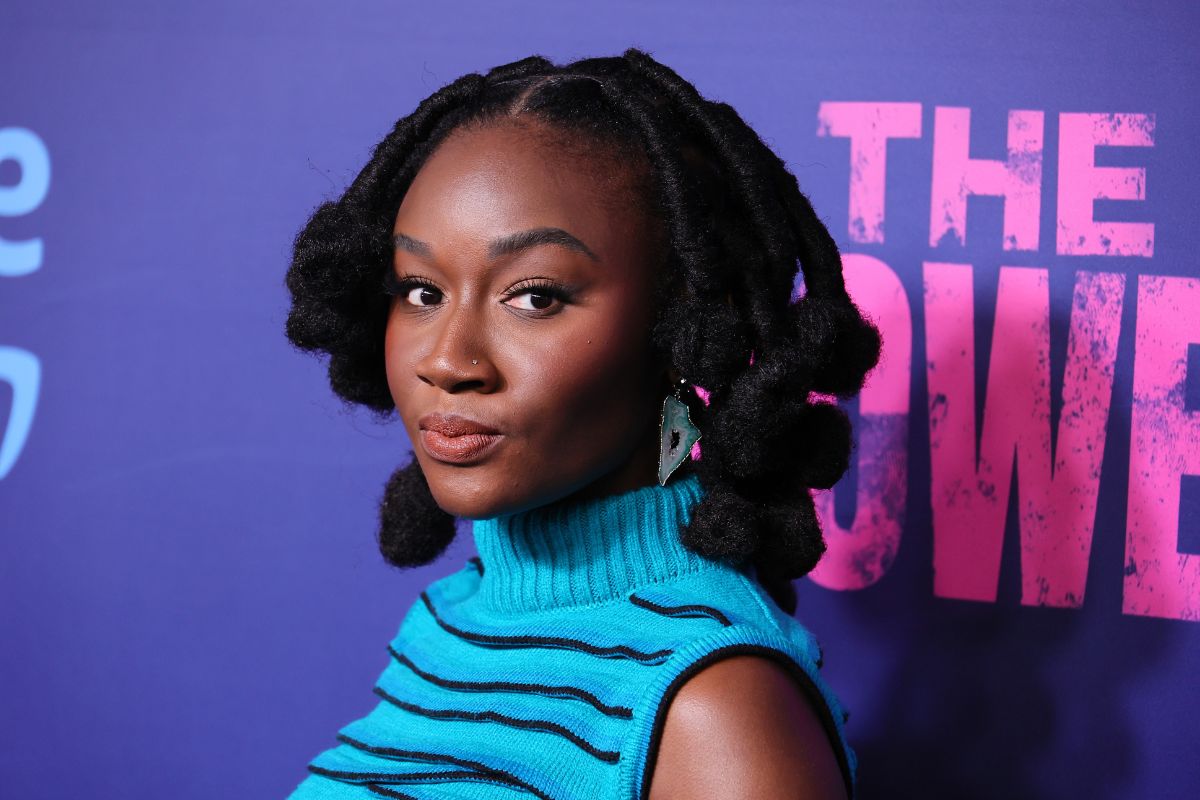Racism Against ‘The Power’ Star at Black-Focused MoMA Installation Is Part of an Exhausting Legacy

After a very public strike to oust Nazi sympathizers, alleged serial rapists, and ties to Epstein, The Sacklers, and others—not to mention the poor treatment of staff, union and not—one would think The Museum of Modern Art (MoMA) would work really hard to prevent further harm to what is left of their public image.
Nah.
Just weeks after MoMA opened Black Power Naps, British Ghanaian actress Heather Agyepong and her friend visited this installation. The exhibition’s themes center on Black rest and reflection on the gap of restoration among an exploited community. The description of the space appears to soothe guests with its dreamlike qualities. Sounds like a perfect getaway between press events for Agyepong’s newest show, Amazon’s TV adaptation of The Power. Unfortunately, this wasn’t the case as Agyepong was kicked out after complaints from a white guest. The actress took to the internet to describe an alarming-yet-unsurprising instance of harassment at the museum.
While experiencing the reflective exhibition about the necessity of rest while living a life under attack, Agyepong explained she heard giggling from a white guest. Agyepong told her that was inappropriate, to which the actress alleges the woman began shouting at her (claiming she was a United Nations member, among many things, as if that means anything). After a member of the MoMA staff approached them, the Agyepong says the white woman demanded she leave due to her perceived aggressiveness. Agyepong then explains that she was, indeed, kicked out.
MoMA and Black Power Naps respond
The artists trace our culture of constant fatigue back to the use of sleep deprivation to control enslaved people in the US. They actively reject this legacy and claim power in rest, inviting you to imagine a world in which leisure, downtime, and quality sleep are available to all.
— MoMA on Black Power Naps
In a private interaction with Agyepong and with the press, MoMA apologized for the incident. The institution promised more staff and training, as well as lunch with complimentary tickets. While it’s certainly something to acknowledge this happened, this could have largely been avoided according to Black Power Naps. Black Power Naps co-founder Navild Acosta explained to The Art Newspaper that a similar icident happened to them in their own installation in January.
We insisted as soon as we were first contacted that this piece needed a serious commitment to anti-racism and that not doing so could warrant violence to our community, and we have been insisting ever since. It is only now that they are recognising how urgent this is and willing to remunerate this labour. It’s been an uphill battle.
Acosta expressed disappointment in the whole interaction, telling Hyperallergic, “What happened to Heather is a nightmare.” Across videos posted to their Instagram, Black Power Naps gave more background and updates. They explain that they’ve met with MoMA daily since hearing about what happened to Agyepong. In an April 2 post, Acosta stated that they tried to get all public-facing staff of the museum in training before the exhibition. However, MoMA gently refused via excuses of protocols and policy. This failure on MoMA’s end wasn’t completely preventable, but it’s possible that it could have been avoided.
Agyepong moves forward
On March 30, Agyepong shared her final thoughts on the matter via Twitter. She explained that the reparations offered to just her felt like “just words,” whereas she will only be satisfied with “genuine policy change to ensure all visitors would be protected, especially those of colour.” Agyepong also stated that MoMA stopped all communication with her after their statement with The Art Newspaper. (Many, if not all, other publications failed to get a comment.)
While certainly ironic because of the circumstances of the setting being an exhibition about Black reprieve, this is not new. (Though after Acosta’s statement, we know this happened at least twice at Black Power Naps.) These stories of harm, policing, and inclination of exclusion (except for purposes of commodification) are a nearly weekly occurrences in museums and public art spaces. This also happens on the employee side (#ChangeTheMuseum), too, regardless of the exhibition. The only reason this reached a wider circle online is because this particular patron is a star in a new, major show.
From their early days as private collections of plunder in the estates of the aristocracy to the public setting of today, paid for by the public, museums have thrived on the exclusion of others. Many have made strides to be more inclusive, especially since things like Negro Day fell out of fashion and the realm of legality during the Civil Rights. However, MoMA refuses to budge much beyond the illusion of progress.
(via Hyperallergic, featured image: Theo Wargo/WireImage)
Have a tip we should know? tips@themarysue.com